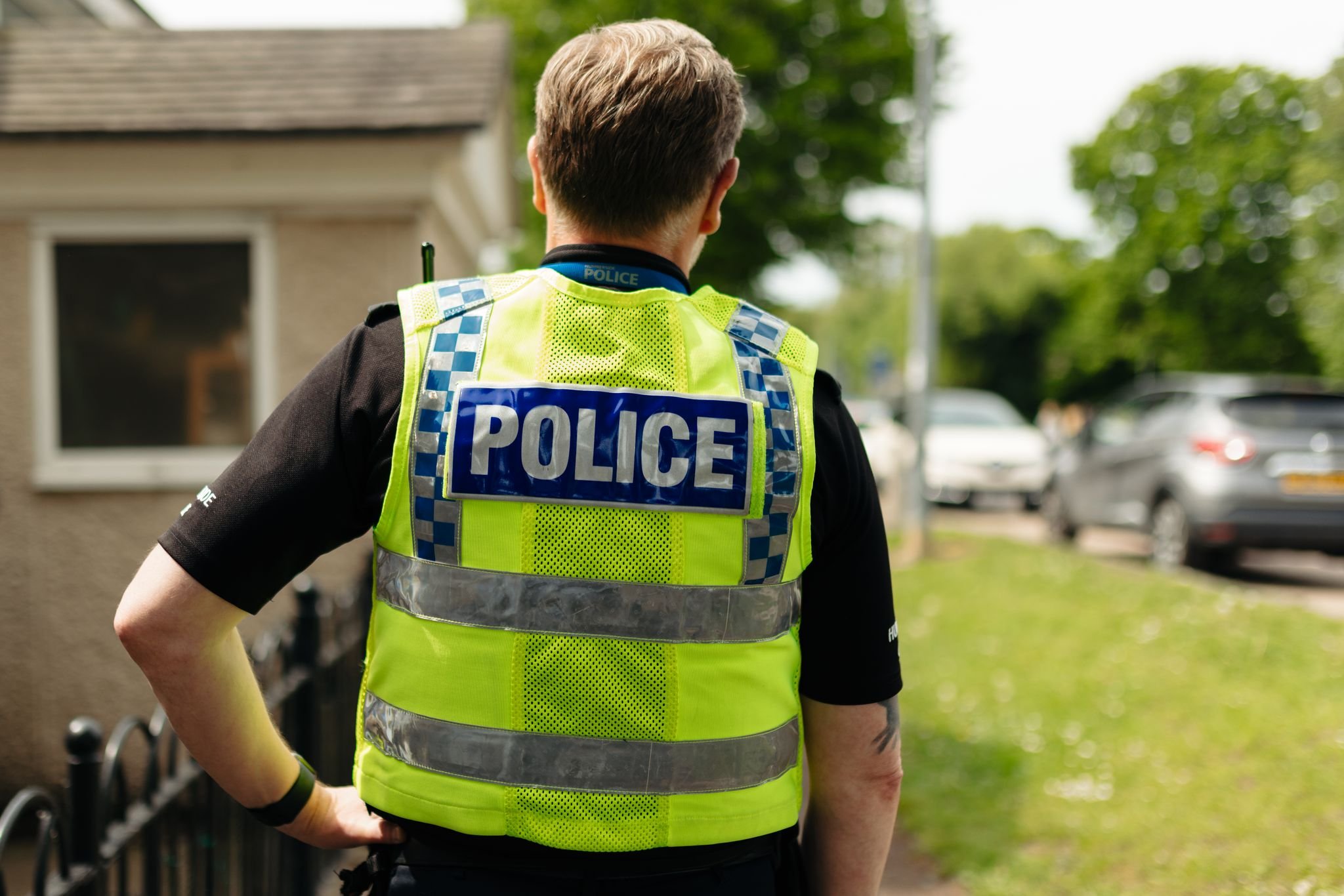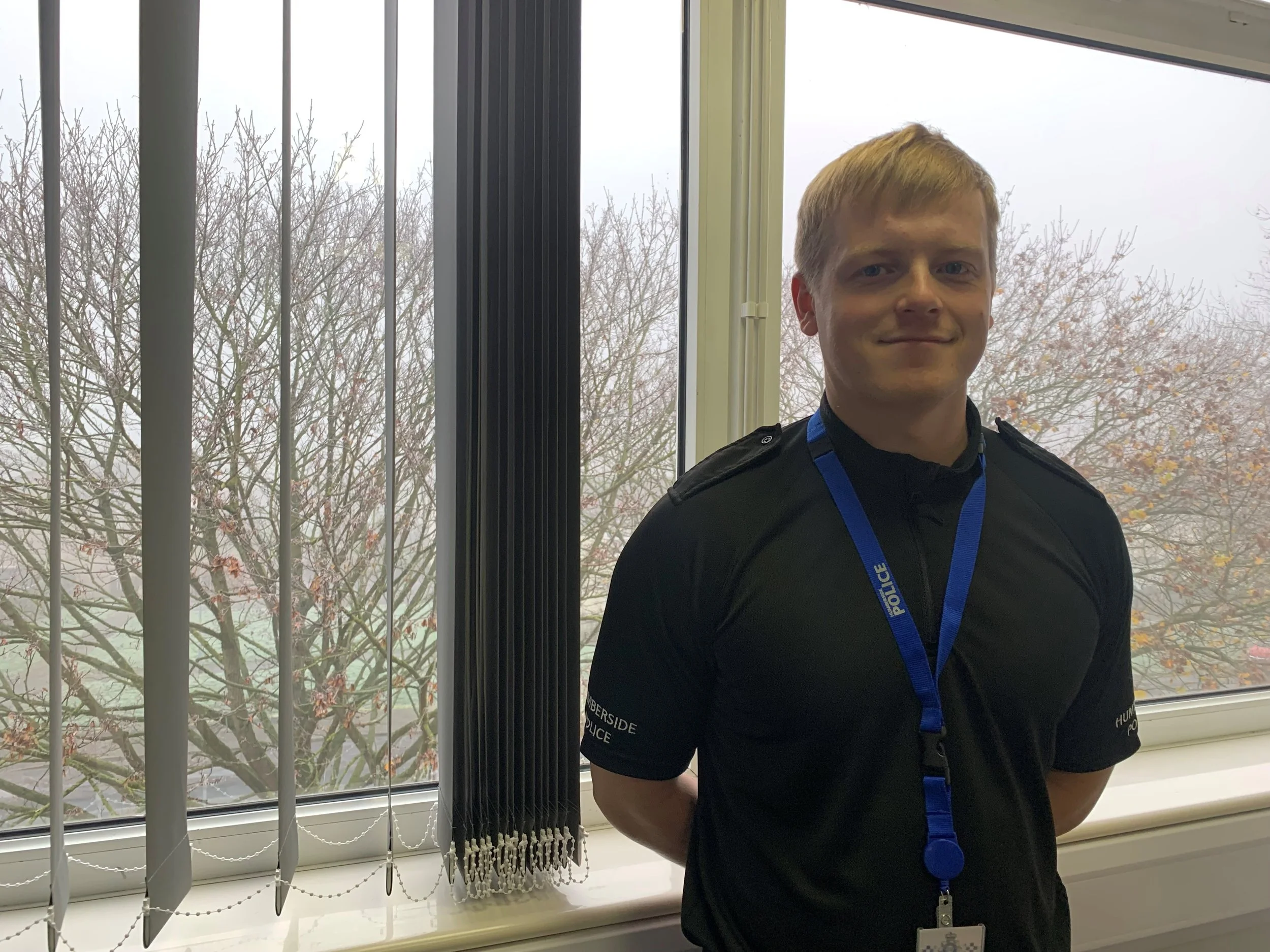‘We want officers with resilience, compassion, honesty and integrity’
Humberside Police have launched a major recruitment campaign at a time when confidence in policing is firmly in the spotlight. Rick Lyon found out more about what the force is looking for in new recruits
Chief Constable Lee Freeman made headlines recently when he wrote an open letter to the whole of Humberside Police calling on the force to help “restore public trust and confidence” in the police.
He felt compelled to do so after Metropolitan Police officer David Carrick was revealed to be a serial sex offender after admitting dozens of rapes and sexual offences against 12 women.
Sir Mark Rowley, Commissioner of the Met, has since said two or three of its officers are expected to appear in court on criminal charges per week in the coming weeks and months and the public should “prepare for more painful stories”, including of violent offending against women and girls.
Mr Freeman, who has taken Humberside from being a failing force to the best performing in England and Wales, according to a recent report from independent watchdog His Majesty’s Inspectorate of Constabulary and Fire & Rescue Service (HMICFRS), said he currently believes “police legitimacy is hanging by a thread”.
It comes as Humberside has launched its latest recruitment campaign to attract more officers.
‘PROUD TO BE WITH HUMBERSIDE POLICE’: Inspector John Symes
So, what is the force is looking for in new recruits, particularly at a time when policing is under such scrutiny?
“Resilience – both physical and mental – as well as compassion, empathy, honesty and integrity,” says Inspector John Symes, Training Delivery Manager at Courtland Road Training Centre, in north Hull.
“They also have to be able to deal with scrutiny and negativity from outside. It can be thankless, but there’s also a real sense of belonging in the force.
“We have our shared values and culture and are all proud to be officers with Humberside Police.”
Operational Police Training Sergeant Jan Walker believes that, despite much of the negativity around policing nationally at the moment, there are plenty of people keen to join up.
ASKING FOR ‘EXTRAORDINARY’ PEOPLE: Operational Police Training Sergeant Jan Walker
“It’s still a very attractive role,” she says. “A lot of our new recruits have had family and friends in the force and like the sound of it.
“We ask them all why they want to do it and almost all of them say they want to put something back into the community.
“They’re doing it for the right reasons. They want to do something that makes them feel like they’re adding value. They also want a job that’s different every day and they certainly get that with the police.
“We ask them to be extraordinary people. They have to be able to deal with someone in a mental health crisis, an emotional crisis, be able to handle a serious and complex investigation, but also manage a pub fight.”
There are numerous entry routes into the police, for degree holders and non-degree holders.
TRANING FUTURE OFFICERS: David Selby, Operational Police Training Sergeant
Anyone who joins without a higher education qualification studies for a degree in Policing as part of their training.
There are also opportunities to specialise in specific areas of policing.
David Selby, Operational Police Training Sergeant, explains: “Traditionally, there was one entry route into the police.
“Everyone would get the same training, go away and complete a portfolio, be signed off in the workplace as being competent and then, after two years, they would get a permanent post as a police officer.
“The PQF (Police Qualification Framework) was developed in recent years to professionalise the training.
RECRUITING: Sergeant David Selby with trainee officers Hollie Appleyard and Tom Susewitz
“Because of the unique nature of the work we do – including complex investigations, problem solving and working with vulnerable people – it was decided qualified police officers should be educated to Level 6, or degree-level.”
All new recruits go through an intensive 20-week training programme, during which they learn about legislation, powers and policies. Modular training covers how to deal with offenders, victims and suspects.
Much of the training is based within the Courtland Road Training Centre, but recruits also go out and take part in physical role play situations.
Following the 20-week programme, trainees accompany a tutor for 10 weeks, putting into practice the theory they’ve learned. They have to complete a portfolio and then, once they are signed off, they can be out on their own.
Hollie Appleyard, 23, from Hull, joined on the IPLDP (Initial Police Learning Development Programme) + programme.
ASPIRING POLICE OFFICER: Hollie Appleyard
She says: “I’ve grown up with my family in the police. My dad, who passed away eight years ago, was a police officer.
“It’s something I’ve always thought about doing. I was in the force’s recruitment team for four years prior to this, so I’ve seen other people start their journey.
“I’ve learned all the legislation we need to know. Some days it has been very office-based but then on other days we’ve done role play. They try to be as true to real life as possible.
“We’ve had guest speakers come in from different departments to talk about their specialisms. There are so many different routes you can go down. I’m going in with an open mind but I’m definitely interested in the detective route.”
Tom Susewitz, 28, from Lincoln, is also on IPLDP+.
HOPING TO HAVE AN IMPACT: Tom Susewitz
Speaking to The Hull Story just one week into his training, he says: “I’ve been in admin jobs and, at the end of a day, a week or a month, I thought ‘I’m wasting my time’. Days would go by and I hadn’t really done a lot.
“With the police, you can have an impact in so many different ways. It’s endless, really.”
PC Ciaran Phipps, 42, has completed his training, which included studying for a degree in Policing.
The former chef, sales rep and mortgage adviser says: “I like to help people and I wanted to give something back to the community. Helping vulnerable people is really important to me and this job allows me to do that.
“I usually police the East Riding and I’ve had to go to the Humber Bridge a number of times to help people who feel they’ve got nowhere to turn.
‘BEST JOB IN THE WORLD’: PC Ciaran Phipps
“I get a lot of job satisfaction from working with the police. It’s the best job in the world and the only regret I have is that I didn’t do it 10 years ago.”
To find out more about joining Humberside Police, click here.








